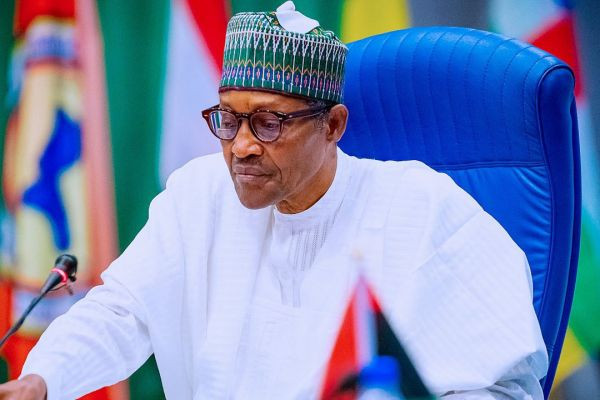Abuja, Nigeria – As Nigeria mourns the passing of former President Muhammadu Buhari, conversations about his legacy have resurfaced—none more pressing than the mixed report card on education. While his administration boasted major financial commitments and the establishment of dozens of institutions, deep-rooted structural challenges continue to cast a shadow over the sector.
From striking teachers to unpaid salaries and unmet global standards, Buhari’s education record is one of ambition and contradiction.
₦6.8 Trillion Spent, Yet UNESCO Benchmark Elusive
Over his eight-year presidency, Buhari’s administration invested an estimated ₦6.798 trillion in the education sector, a figure his supporters hail as evidence of a strong commitment to learning and youth development.
The budget for education rose significantly—from ₦369.6 billion in 2016 to an all-time high of ₦2.05 trillion in 2023. Here’s the year-by-year allocation:
-
2016: ₦369.6 billion
-
2017: ₦448.4 billion
-
2018: ₦605.8 billion
-
2019: ₦620.5 billion
-
2020: ₦671.07 billion
-
2021: ₦742.52 billion
-
2022: ₦1.29 trillion
-
2023: ₦2.05 trillion
But while these numbers suggest progress, education experts point out that Nigeria consistently fell short of the UNESCO-recommended 15–20% budgetary allocation to education. Under Buhari, education spending hovered between 4.95% and 10.8% of the national budget—well below global best practices.
New Institutions: A Legacy of Expansion
One of the administration’s most visible achievements was the creation of over 37 educational institutions, including 18 universities, eight polytechnics, six colleges of education, and five science and technical colleges.
Among the notable new institutions:
-
Federal University of Transportation, Daura (Katsina)
-
Nigerian Maritime University, Okerenkoko (Delta)
-
David Umahi Federal University of Medical Sciences, Uburu (Ebonyi)
-
Army University, Biu (Borno)
-
Federal University of Agriculture, Zuru (Kebbi)
-
Aerospace University, FCT
-
Air Force Institute of Technology, Kaduna
-
Federal Polytechnic, Ugep (Cross River)
-
Federal College of Education, Iwo (Osun)
-
Federal Science and Technical Colleges in Bauchi, Sokoto, and Plateau
Supporters argue this expansion democratized access to higher education, particularly in underserved areas. However, critics say these schools often lacked adequate funding, infrastructure, and personnel to function effectively from inception.
860 Days of Strikes: A Sector in Turmoil
Despite the new investments, Nigeria’s education sector was repeatedly rocked by industrial actions during Buhari’s tenure. According to a Guardian investigation, major education unions recorded over 860 days of strike between 2015 and 2023.
Breakdown of strike days by union:
-
ASUU (Academic Staff Union of Universities): 610 days
-
ASUP (Polytechnics): 147 days
-
SSANU and NASU (Non-Academic Unions): 111 days
The most crippling strike occurred in 2020, lasting a record-breaking 270 days—the longest in Nigeria’s democratic history. The strikes disrupted the academic calendar, delayed graduations, and caused emotional and academic setbacks for millions of students.
The demands? Improved university funding, renegotiation of the 2009 ASUU agreement, and better welfare for academic staff.
Professor Emmanuel Osodeke, immediate past ASUU president, didn’t mince words:
“The government could find ₦4 trillion for fuel subsidies but struggled to provide ₦200 billion annually to revamp universities. That tells you where education stood in their priorities.”
Unity School Teachers Left in the Cold
Another blemish on the administration’s record was the handling of newly recruited teachers for Unity Schools (Federal Government Colleges). Between 2018 and 2020, 1,800 teachers were recruited—but many remained unpaid for three years.
Despite receiving their postings and assuming duties, these teachers endured years without salaries or allowances, raising serious questions about the government’s commitment to educators.
The arrears remain unresolved, with some affected staff facing economic hardship, demoralization, and even abandonment of their posts.
A Mixed Legacy
In the final analysis, Buhari’s education legacy is a tale of two realities: bold expansion and budget growth on one side, marred by unmet promises, systemic neglect, and bureaucratic dysfunction on the other.
Analysts agree that while the administration laid some groundwork for future growth, true transformation requires political will, sustained funding, and genuine engagement with education stakeholders.
As Nigeria reflects on Buhari’s legacy and looks ahead, the challenge remains clear: education must move from political rhetoric to national priority. The nation’s future depends on it.









